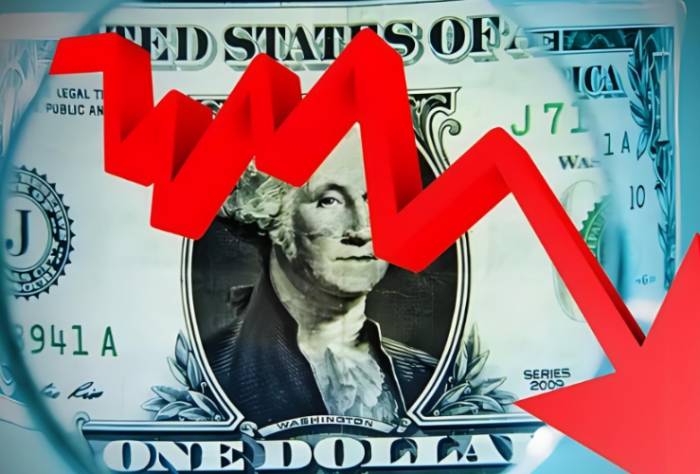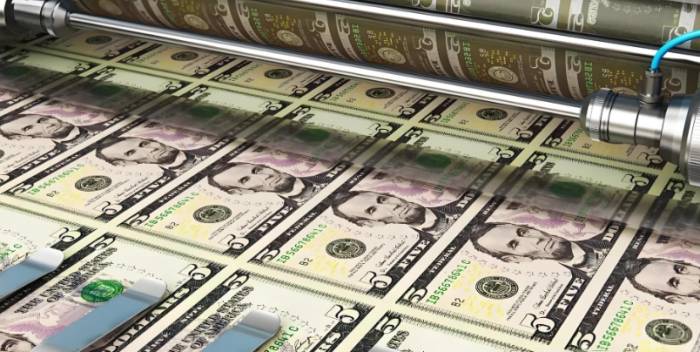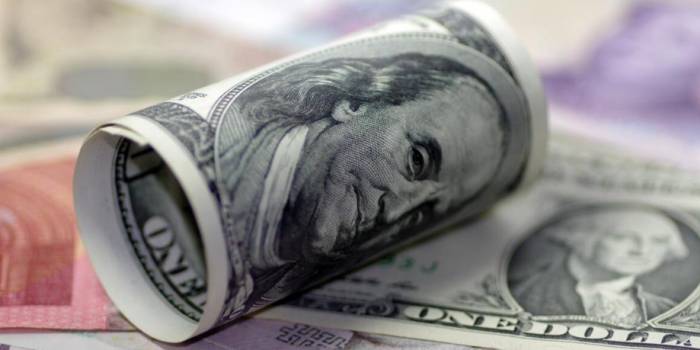At present, China's economic development is undergoing a profound and complex transformation phase.
External factors such as the capital inflow from overseas following the interest rate cut by the Federal Reserve also have a significant impact on our country's economic landscape.
Some experts predict that after October, China will usher in three major important changes.
Although the impact they bring has both pros and cons, it is not only related to national development but also closely related to everyone's life.
So, what are the three major changes?
What impact will they bring to our lives?
Starting from September 19th, the Federal Reserve's long-anticipated interest rate cut policy has finally begun.
Not only is the cut significant, reaching 50 basis points, but there may also be multiple rounds of rate cuts in the near future.
The policy adjustment by the Federal Reserve has led to a large outflow of American capital.
Even Japan, which has been experiencing a severe economic downturn recently, has gritted its teeth and introduced a rate hike policy to better attract international investment.
Although China has not followed suit with a rate hike policy, the foreign trade funds that have been lingering in the United States for the past two or three years have also begun large-scale exchanges.
A large amount of capital flowing back to China has led to an appreciation of the RMB exchange rate, and it may also attract a large amount of international "hot money" to China.
The influx of a huge amount of funds can, of course, inject new vitality into the domestic economic development and provide more financing channels and development opportunities for private enterprises.
This will become a good opportunity for them to upgrade their technology and transform their industries.
It is worth noting that the ultimate goal of this "hot money" is to profit from China's financial market.
They can certainly help some enterprises enhance their competitiveness, but if enterprises rely too much on foreign capital, they may face disaster once the other party adjusts their investment strategy for profit.
Of course, if this "hot money" is not quickly harvested, the transformation of China's economy towards high-quality development will be accelerated, and the vigorous development of private enterprises will also create more employment opportunities, playing a positive role in stabilizing the job market.
The large influx of international funds may stimulate a certain degree of price increase and fluctuation in domestic goods, which may encourage some foreign trade enterprises to give up the export business with sharply reduced profits after the appreciation of the RMB exchange rate, and turn to expand the import business and the domestic demand market.
However, we should also be aware that although the change in price increase is relatively favorable for enterprise transformation, it is a considerable burden for many domestic consumers.
The sudden increase in living costs may affect the consumption ability of some groups, and the economic pressure on low-income groups is particularly severe.
It is worth mentioning that the capital inflow has also brought new challenges to financial supervision.
How to prevent overseas funds from "making waves" in the financial field and guide funds to the real economy has become an important issue that regulatory authorities need to solve.
In recent years, China's real estate industry has suffered a heavy blow, but buying a house to settle down is still an important milestone in the lives of many young people.
The decline of the real estate market has led many homebuyers to gradually give up the pre-sale housing and start to pay attention to the second-hand housing market.
It is reported that in the current severe downturn of China's real estate market, the second-hand housing market in China has become more active.
The second-hand housing that can directly feel the quality of the house, the surrounding environment, and supporting facilities not only avoids many potential risks but also has favorable conditions such as mature communities.
At the same time, although many people in China still hold the obsession that "only buying a house is considered having a home," the declining fertility rate over the years has also led many young people who are ready to grow old alone to give up their home-buying plans.
The rapid increase in rental demand and the sluggish economy of commercial housing have stimulated the advancement of China's affordable housing policies.
This "win-win" policy, which can both "bottom out" the real estate industry and improve the housing conditions of low and middle-income groups, has ushered in a period of rapid development.
A large number of affordable housing and public rental housing have been put into the market, which can not only effectively alleviate the urban housing pressure and provide a place to live for more people but also significantly reduce the housing costs, allowing people to use more funds to improve the quality of life, stimulate local consumption, and promote a virtuous economic cycle.
Of course, the implementation of affordable housing policies is likely to further reshape the market structure of the real estate industry, and the commercial housing market will experience very intense fluctuations.
However, developers who have gone through the "survival of the fittest" will form a more virtuous competitive model.
If the real estate industry can complete this "safe landing," ordinary people will have more autonomy in housing choices.
Whether they choose to buy commercial housing, second-hand housing, or opt for long-term rental of government-backed affordable housing, they can greatly reduce the pressure on young people to buy a house.
Without the big trouble of housing issues, people can put more energy and resources into personal growth, family life, or even social participation.
The optimization of consumption structure can not only bring an improvement in the quality of life for people but also allow many people to better balance their work and life.
In addition, the decline of the commercial housing market may further optimize the planning and development of cities.
The government's unified arrangement for the construction of affordable housing can better promote the balance of work and residence, reduce commuting time and traffic pressure in small and medium-sized cities.
Although the "big city disease" of first-tier cities such as Beijing, Shanghai, Guangzhou, and Shenzhen cannot take effect quickly due to the huge population base, for areas with relatively less population pressure, the construction of affordable housing can better promote the optimization of urban functions, improve the efficiency of urban operation, and improve the quality of life for residents.
Although the blessings brought by affordable housing policies are still slightly far away, the decline of the commercial housing market has obviously reduced the housing pressure of many families.
China's rapidly rising consumer confidence index reflects the continuous improvement of the domestic economic environment and people's expectations for the improvement of future quality of life.
In response to the positive attitude of the people, the country has also begun a new round of policy changes in the consumer market, stimulating the growth of the domestic consumer market through tax cuts and fee reductions, effectively stimulating market vitality, and releasing consumption potential.
In the context of the domestic consumer market about to usher in vigorous development, the traditional consumption model will also undergo a new round of "big reshuffling."
Consumers will no longer be satisfied with simple material enjoyment and will start to pursue higher quality, more intelligent products and services.
Food safety has always troubled many people.
For a long time in the future, people may prioritize organic, healthy, and high-quality agricultural products if they are financially allowed, which can better promote the development of China's agriculture.
In the clothing industry, more and more shoppers no longer blindly believe in big brands but choose those with strong design sense, high-quality materials, and good value for money in the mid-to-high-end products, forcing related practitioners to continuously adjust their business strategies.
The home appliance market is the most obvious place for intelligence and high-end.
Unlike "big items" such as smart cars, many smart homes and wearable devices with relatively low prices have achieved significant improvements in product quality and user experience by carrying artificial intelligence and Internet of Things technology.
In this era full of variables, we should maintain an open and learning attitude, continuously enrich our knowledge, in order to better adapt to the new situation and grasp new opportunities.





























